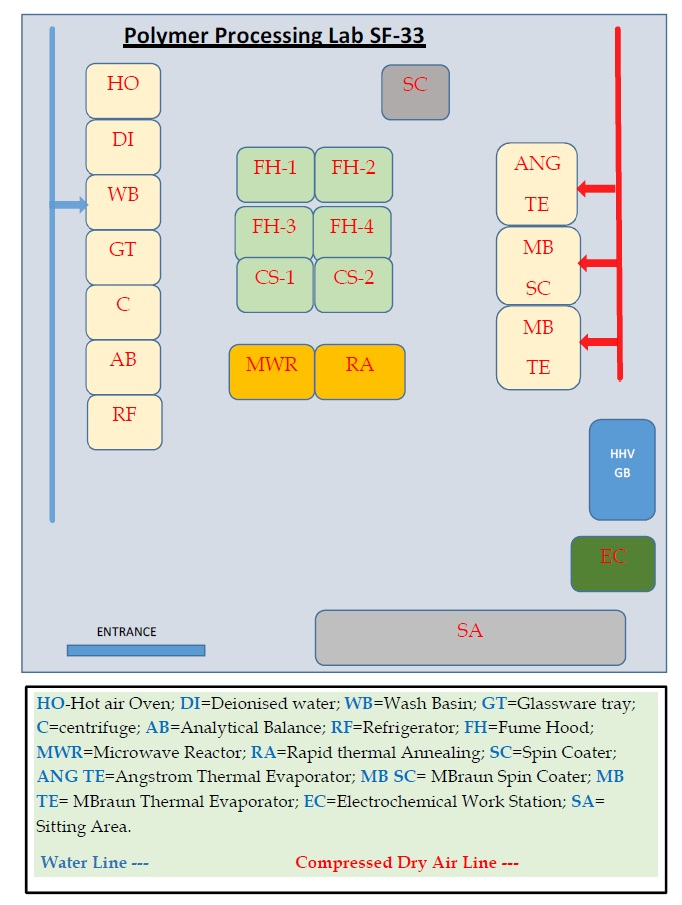Organic material deposition requires uniform and precise heating with excellent temperature and deposition rate control. This is commonly achieved using a source similar to an effusion furnace. In an effusion type source, evaporation of the target material occurs via electrical (Joule) heating of a refractory metal filament coiled around a alumina, ceramic, or quartz crucible. The crucible is heated above the melting or sublimation point of the source material to create adequate vapour pressure for deposition.
Make: Angstrom engineering Nexdep thermal Evaporator
Ultimate Pressure : 4.3×10-7mbar
Maximum Power : 150V (Applied in terms of %)
Thickness Range : 5-150nm
Deposition Uniformity : 10%
Materials list Allowed : Al, Ag, Au, Alq3, MoO3, LiF, V2O5, BCP, CuPc,
Materials list that can be processed (deposited) : Alq3, MoO3, BCP, CuPc, Al, Ag, LiF, V2O5, Au
Deposition Rate : 1-10A°/Sec
Distance from Source to Sample : up to 10cm
Substrate Heater : up to 200°C
Substrate Maximum Size allowed : 3 inch in dia or 70×70 mm
Substrate rotation : 2-10 rpm
Make: Angstrom engineering Nexdep thermal Evaporator
Ultimate Pressure : 4.3×10-7mbar
Maximum Power : 150V (Applied in terms of %)
Thickness Range : 5-150nm
Deposition Uniformity : 10%
Materials list Allowed : Al, Ag, Au, Alq3, MoO3, LiF, V2O5, BCP, CuPc,
Materials list that can be processed (deposited) : Alq3, MoO3, BCP, CuPc, Al, Ag, LiF, V2O5, Au

How to apply - link to form (Internal): As per request through FOM